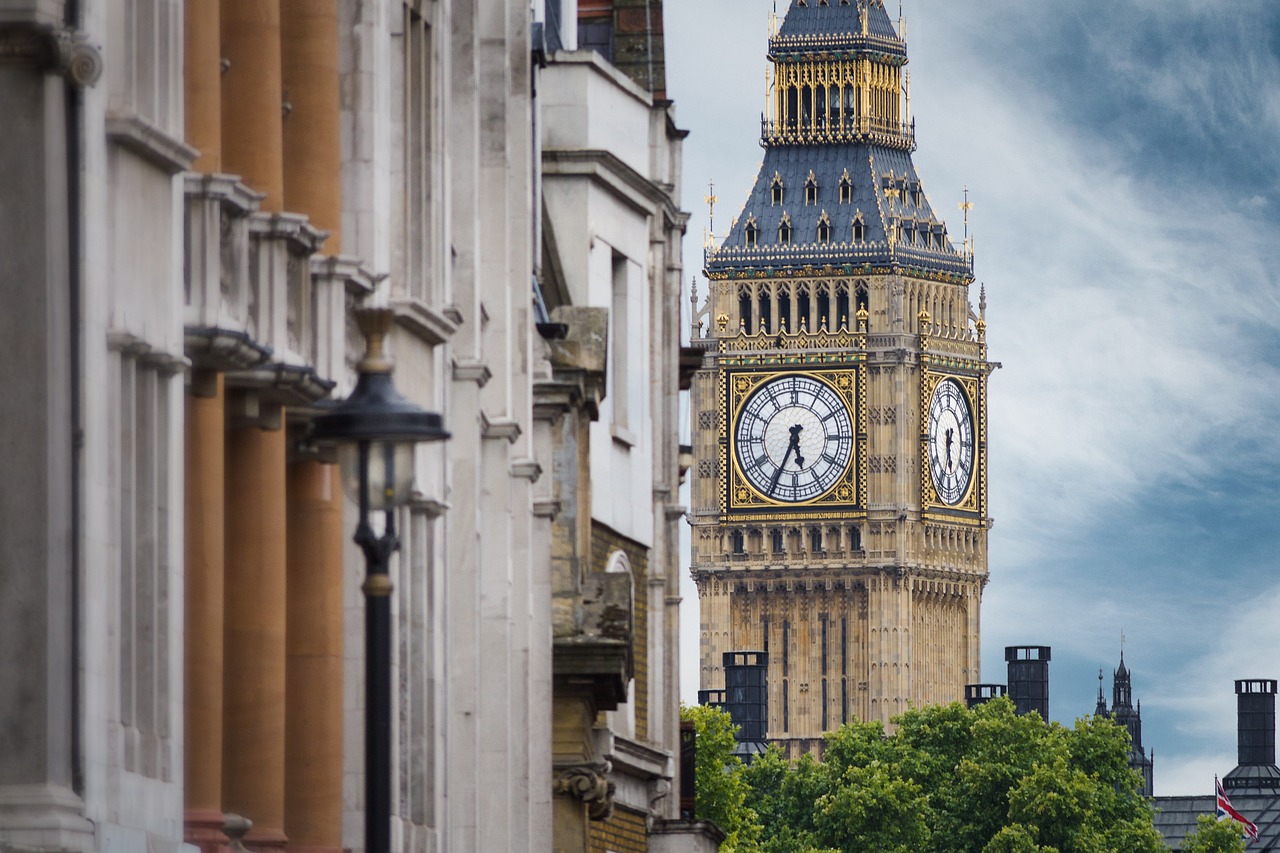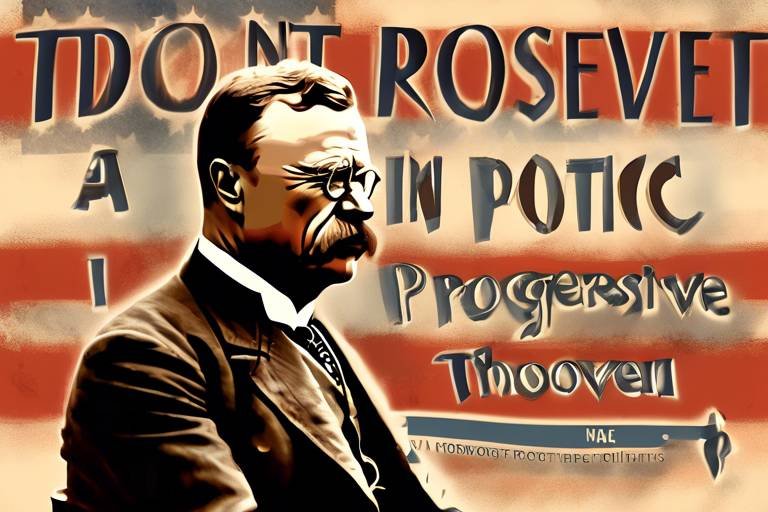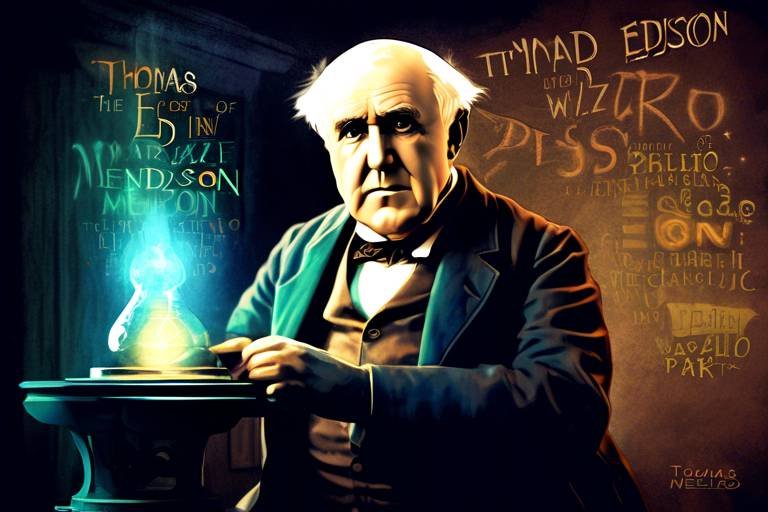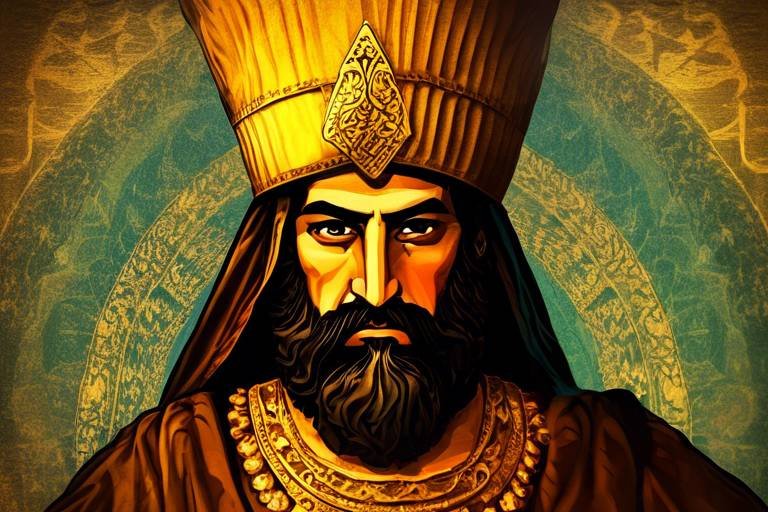Henry IV: The King of England
Henry IV, also known as Henry Bolingbroke, ascended to the English throne during a turbulent period in the country's history. His reign was marked by political challenges, military campaigns, and efforts to maintain control over the kingdom amidst internal strife and external threats.

Early Life and Background
Henry IV, also known as Henry Bolingbroke, was born on April 3, 1367, in Bolingbroke Castle, Lincolnshire. He was the son of John of Gaunt, the Duke of Lancaster, and Blanche of Lancaster, making him a member of the powerful House of Lancaster. Henry's early life was marked by privilege and prestige, growing up in the midst of the political turmoil that characterized the late 14th century England.
As a young man, Henry IV gained military experience and political acumen, serving in various capacities within the royal court and participating in military campaigns in France. His relationship with King Richard II, his cousin, became strained over time, leading to a series of events that culminated in Henry's dramatic rise to power.
In 1399, Henry IV seized the English throne from Richard II, claiming it as his birthright and asserting his authority as the rightful king. This pivotal moment in English history marked the beginning of Henry's reign and set the stage for the challenges and triumphs that would define his rule.

Reign and Political Challenges
Exploring the life, reign, and legacy of Henry IV, King of England, who ruled during a tumultuous period in English history and faced challenges to his throne from various factions.
Henry IV's reign was marked by political turmoil and challenges to his authority. Upon seizing the throne, he faced immediate opposition from rival claimants and discontent within his own nobility. The legitimacy of his claim to the crown was constantly questioned, leading to rebellions and uprisings that threatened the stability of the kingdom.
Despite his efforts to consolidate power, Henry IV struggled to maintain control over his realm. His reign was characterized by constant political maneuvering and the need to navigate complex alliances and rivalries. The king's ability to govern effectively was hindered by ongoing disputes with powerful factions, including the Percy family, whose rebellion at the Battle of Shrewsbury posed a significant threat to his rule.
Throughout his reign, Henry IV faced challenges from both domestic and foreign adversaries. The Welsh and Scottish wars tested his military prowess and ability to defend the borders of his kingdom. Additionally, tensions with France and other European powers required diplomatic finesse and strategic decision-making on the part of the English monarch.
Henry IV's relationship with Parliament was also a source of contention. The king often clashed with the legislative body over matters of taxation, governance, and foreign policy. His attempts to assert royal authority and limit the influence of Parliament led to ongoing tensions that shaped the political landscape of medieval England.
Despite the challenges he faced, Henry IV's reign was not without successes. The king's military campaigns in Wales and Scotland, while costly and protracted, ultimately secured English control over these regions. His religious policies and reforms within the Church aimed to address dissent and promote stability within the realm.
In the face of political adversity and internal strife, Henry IV's legacy as a monarch is complex and multifaceted. His reign left a lasting impact on the political and social fabric of medieval England, shaping the course of history for generations to come.
1. What were the major political challenges faced by Henry IV during his reign?
2. How did Henry IV's relationship with Parliament influence his governance?
3. What were the key military campaigns and conflicts that defined Henry IV's rule?
4. What reforms did Henry IV implement within the Church, and what was their significance?
5. What is the lasting legacy of Henry IV as a monarch in English history?

Battle of Shrewsbury
The Battle of Shrewsbury, fought on July 21, 1403, was a significant military engagement during the reign of Henry IV. This clash marked a critical moment in Henry's efforts to secure his position as King of England amidst challenges to his rule. The battle took place near the town of Shrewsbury in Shropshire, England, between the forces loyal to Henry IV and a rebel army led by Henry "Hotspur" Percy, a prominent nobleman opposed to the king's reign.
The outcome of the Battle of Shrewsbury was a decisive victory for Henry IV, despite facing a formidable opponent in Hotspur. The conflict resulted in Hotspur's death on the battlefield, dealing a severe blow to the rebellion against the king. Henry's triumph at Shrewsbury solidified his authority and demonstrated his military prowess, bolstering his reputation as a capable leader and warrior.
The strategic significance of the Battle of Shrewsbury cannot be overstated. It not only quashed a major threat to Henry IV's rule but also sent a clear message to his adversaries that he was willing and able to defend his crown by force. The aftermath of the battle saw Henry consolidating his power and further asserting his dominance over the turbulent political landscape of medieval England.

Relationship with Parliament
Henry IV's relationship with the English Parliament was a complex and ever-evolving dynamic that shaped the political landscape of his reign. As a monarch who faced numerous challenges to his authority, Henry IV relied heavily on Parliament for support and legitimacy. Despite his efforts to maintain control over the kingdom, Henry IV often found himself at odds with the legislative body, leading to tensions and power struggles.
Throughout his reign, Henry IV called upon Parliament to grant him the necessary funds and resources to govern effectively. This reliance on parliamentary approval for taxation and legislation underscored the importance of cooperation between the monarchy and the representatives of the people. However, Henry IV's attempts to assert his authority and centralize power sometimes clashed with the interests and demands of Parliament, leading to conflicts and disagreements.
Despite these challenges, Henry IV recognized the significance of maintaining a working relationship with Parliament to ensure stability and order within the realm. By seeking the support of the legislative body, Henry IV aimed to secure the backing of the nobility and commoners, thereby strengthening his position as king. Through negotiations and compromises, Henry IV navigated the intricate balance of power between the monarchy and Parliament, striving to uphold his authority while respecting the rights and privileges of the representatives of the realm.
Henry IV's interactions with Parliament reflected the complexities of medieval governance, where the cooperation and conflict between the crown and the legislative body shaped the political decisions and policies of the realm. As a monarch who faced internal dissent and external threats, Henry IV's relationship with Parliament played a crucial role in defining the limits of royal power and the boundaries of parliamentary authority.

Foreign Policy and Military Campaigns
Henry IV's foreign policy and military campaigns played a crucial role in shaping his reign as King of England. Known for his strategic alliances and military prowess, Henry IV sought to expand English influence abroad while also dealing with internal challenges.
One of the key aspects of Henry IV's foreign policy was his focus on maintaining alliances with powerful European nations to secure England's position on the international stage. By forging diplomatic ties with countries like France and Spain, Henry IV aimed to strengthen England's position in the complex web of European politics.
Additionally, Henry IV was actively involved in military campaigns to assert English dominance in regions such as Wales and Scotland. His military strategies were aimed at consolidating control over these border regions and quelling any potential threats to his rule.
Furthermore, Henry IV's military campaigns were not limited to domestic conflicts but also extended to overseas territories. He sought to expand English influence through military interventions in regions such as Ireland and the Low Countries, aiming to establish English presence and control in strategic areas.
Despite facing challenges both at home and abroad, Henry IV's foreign policy and military campaigns were instrumental in solidifying his authority as King of England and asserting the power of the English crown on the global stage.

Welsh and Scottish Wars
The were significant military engagements during Henry IV's reign as King of England. These conflicts played a crucial role in shaping the borders and relationships of the kingdom with its neighboring territories. Henry IV faced numerous challenges in both Wales and Scotland, as he sought to maintain control over these regions and assert English authority.
In Wales, Henry IV encountered resistance from Welsh rebels who opposed English rule. The Welsh Wars were marked by fierce battles and strategic maneuvers as Henry IV aimed to subdue the rebellious Welsh forces and establish dominance in the region. The king's military campaigns in Wales were crucial in securing the borders and preventing further uprisings against his rule.
Similarly, in Scotland, Henry IV faced opposition from Scottish clans and nobles who sought to challenge English influence in the northern territories. The Scottish Wars tested Henry IV's military prowess and diplomatic skills as he navigated the complex political landscape of medieval Scotland. These conflicts often resulted in shifting alliances and prolonged skirmishes along the border.
Henry IV's strategies in the Welsh and Scottish Wars were aimed at consolidating his power and expanding English control over the neighboring territories. The king's military campaigns were not only focused on securing the borders but also on asserting his authority as the ruler of a unified kingdom. The Welsh and Scottish Wars highlighted the challenges of maintaining order and stability in the border regions during a time of political upheaval and regional rivalries.

Religious Policies and Reforms
Henry IV's religious policies and reforms played a significant role in shaping the religious landscape during his reign as King of England. Known for his devout faith, Henry IV sought to address religious dissent and promote stability within the Church. One of his key reforms was aimed at combating heresy and ensuring orthodoxy within the realm. By strengthening the authority of the Church and supporting the clergy, Henry IV aimed to maintain religious unity and uphold the traditional beliefs of the kingdom.
Furthermore, Henry IV's religious policies extended to his efforts to regulate religious institutions and practices. He implemented measures to enhance the Church's influence and control over religious affairs, including the appointment of loyal and competent clergy members. By promoting religious education and encouraging piety among the populace, Henry IV aimed to instill moral values and strengthen the spiritual fabric of the kingdom.
In addition to his internal religious reforms, Henry IV also navigated complex relationships with the Papacy and other European powers. His diplomatic efforts in religious matters aimed to secure the Church's support and navigate the intricate web of ecclesiastical politics. By balancing the interests of the Church with those of the crown, Henry IV sought to maintain harmony and stability within the religious sphere.
Overall, Henry IV's religious policies and reforms left a lasting impact on the religious landscape of medieval England. His commitment to upholding religious orthodoxy, promoting Church authority, and fostering spiritual devotion contributed to the religious cohesion of the kingdom during a tumultuous period in English history.

Legacy and Historical Impact
Henry IV, the King of England, reigned during a turbulent period in English history, facing challenges to his throne from various factions. His life, reign, and legacy are a fascinating subject of exploration.
Henry IV's upbringing and family history played significant roles in shaping his path to the English throne. His involvement in the overthrow of Richard II marked a pivotal moment in his ascension to power.
Throughout his reign, Henry IV grappled with governance issues, political struggles, and the task of maintaining control over the kingdom amidst rebellions and conflicts with rival claimants. The complexities of medieval politics tested his leadership skills.
The Battle of Shrewsbury stands out as a crucial event that solidified Henry IV's hold on the crown. This significant military engagement reshaped the political landscape of medieval England, showcasing his strength and determination.
Henry IV's interactions with the English Parliament were pivotal in securing support for his policies. The evolving dynamics between the monarchy and the legislative body reflected the challenges of governance during his reign.
Henry IV's foreign alliances and military campaigns were instrumental in expanding English influence abroad. His strategic decisions in international affairs shaped the course of his rule as king.
The military engagements in Wales and Scotland under Henry IV's command were critical for maintaining control over the border regions. These conflicts had a lasting impact on the kingdom's territorial integrity.
Henry IV's approach to religion and the reforms he implemented within the Church reflected his efforts to address religious dissent. His policies in this realm influenced the religious landscape of medieval England.
Henry IV's legacy as a monarch is profound, with lasting contributions to English history. His reign left an indelible mark on the political and social fabric of medieval England, shaping the course of future events and monarchs.
Have questions about Henry IV, his reign, or his historical significance? Check out these common queries:
- What were the key challenges Henry IV faced during his reign?
- How did Henry IV's religious policies impact medieval England?
- What was the significance of the Battle of Shrewsbury in Henry IV's reign?
- How did Henry IV's relationship with Parliament evolve over time?
Frequently Asked Questions
- Who was Henry IV?
Henry IV was the King of England who ruled during a turbulent period in English history, facing challenges to his throne from various factions. He played a significant role in the overthrow of Richard II and ascended to the throne in 1399.
- What were the key political challenges faced by Henry IV?
Henry IV faced numerous political struggles during his reign, including rebellions, uprisings, and conflicts with rival claimants to the throne. His efforts to maintain control over the kingdom amidst these challenges shaped his legacy as a monarch.
- How did the Battle of Shrewsbury impact Henry IV's reign?
The Battle of Shrewsbury in 1403 was a pivotal moment for Henry IV, solidifying his hold on the crown and consolidating his power in the face of opposition. The outcome of this battle had far-reaching implications for the political landscape of medieval England.
- What were Henry IV's foreign policy and military campaigns focused on?
Henry IV's foreign policy centered on forming alliances, engaging in military campaigns, and expanding English influence abroad. His military engagements in Wales and Scotland, among other regions, aimed to maintain control and assert English authority.
- How did Henry IV approach religious policies and reforms?
Henry IV implemented religious reforms and addressed dissent within the Church during his rule. His approach to religion and the reforms he enacted had a lasting impact on the religious landscape of medieval England.
- What is Henry IV's legacy and historical impact?
Henry IV's reign left a significant mark on English history, shaping the political and social landscape of medieval England. His contributions as a monarch and the effects of his rule continue to be studied and debated by historians.



















